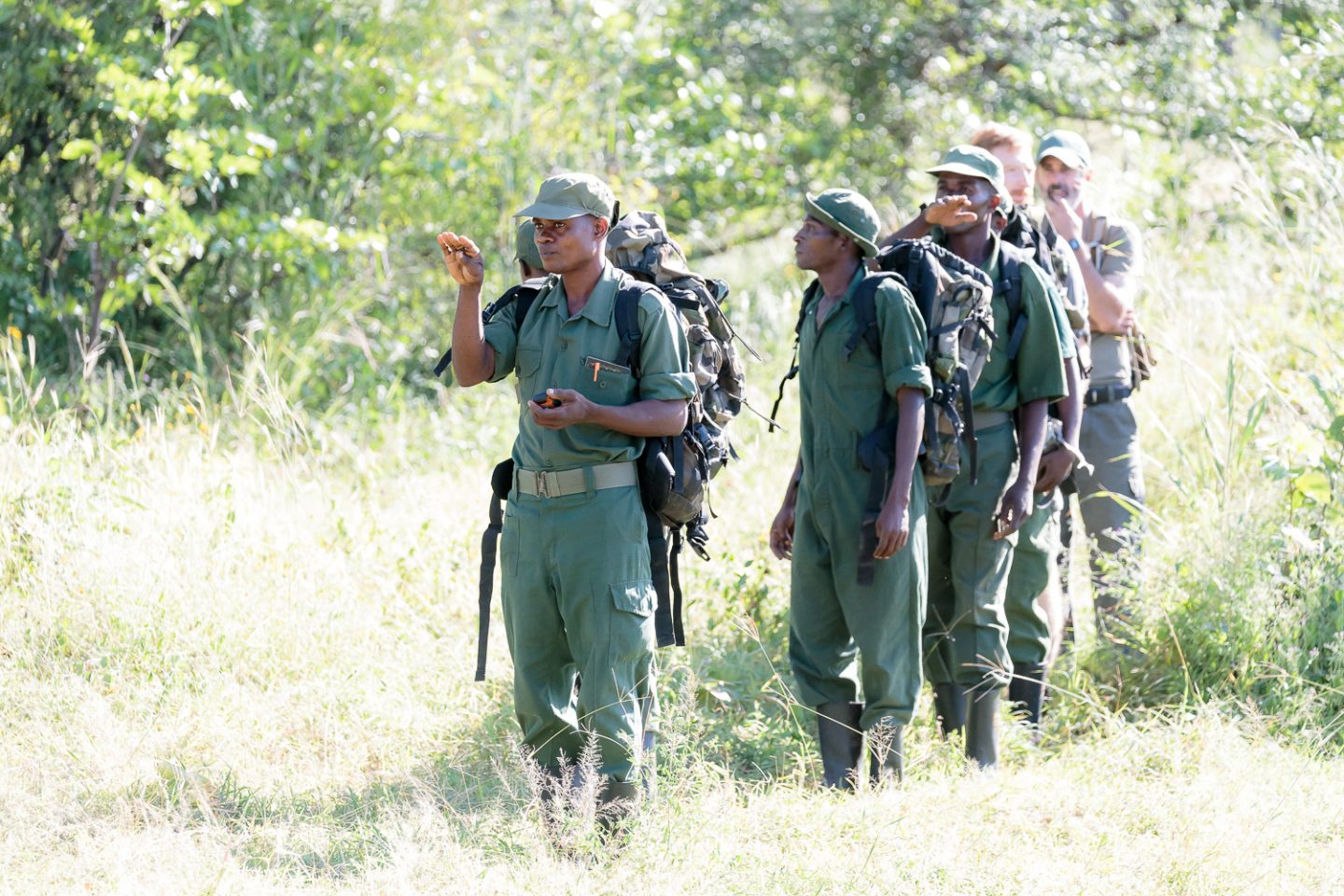
Thanks to the incredible resilience and ingenuity of our partners, and with continued funding from Tusk, projects have been kept going through incredibly challenging times. Our partners have maintained their staff and kept boots on the ground, in some cases even continuing to pay staff when programmes haven’t been running due to restrictions. With significant funding losses and limited budgets, they have formed new partnerships to pool resources and adapted to new ways of working.
We have kept in touch with our partners throughout this crisis and recently brought a group together virtually to discuss the current situation and how we can begin to support them on the road to recovery. Below are some recent comments from the field of how our partners are faring.
Clearly the crisis is not over. Tourism across Africa will take many months, if not years, to recover and the reliance of some conservation initiatives on tourism revenue is a concern. Poaching of rhinos and elephants, which had largely decreased due to restricted movements and closed borders, is on the rise again in some areas. Communities are still suffering from lost livelihoods and greater hardship, and turning to natural resources in order to survive. The Covid vaccine roll-out has meanwhile begun across Africa, but is likely to take much longer than in other parts of the world.
But we are confident that wildlife and communities will come through this and build back stronger. Through the Tusk Recovery Appeal, we aim to provide continued support and maintain our investment to our project partners as they overcome this challenging time.
Comments from the field:
Uganda Conservation Foundation:
“The impact of Covid on local people has been utterly devastating. And without the 20% revenue sharing we would normally be providing to the communities [from tourist fees to the National Park], they have had absolutely nothing. With floods, locusts and other severe problems, all jobs and lodges basically going, the supply chains gone, any economic regional development gone, they are very vulnerable.
“Unfortunately poaching remains very high. People are still hungry. And the usual illegal networks of crime syndicates, poaching groups and the demand for meat is ever there. The pressure on us is huge and so we have the rangers out everywhere in the park non-stop.”
Painted Dog Conservation, Zimbabwe:
“PDC has really shone and stood out compared to many of the other organisations around here because we have maintained our staff. Most of the 65 staff members are from these villages and we’re paying people that haven’t actually been working because they’ve been with us a long time. With the funding from Tusk we engage community members in anti-poaching and pay them a daily stipend. It’s really enhanced our position within the community. But it has emphasised the vulnerability of the area in terms of tourism and the reliance on tourism, and that is a concern.”
Conservation Through Public Health, Uganda:
“Bushmeat poaching really went up when the pandemic began. A lot of it is because tourists provide some level of law enforcement. Where people come to visit the gorillas the poachers can’t really put their snares there and they can’t move around a lot. So that’s part of the biggest problem. It even resulted in a gorilla being speared by a poacher.
“But one good thing is that there has been a baby boom in Bwindi. Since the beginning of 2019 there have been 45 gorilla births and half of them have been born during the pandemic. 22 babies from March 2020 to now, which is higher than normal. We don’t know if it’s because there are no tourists around.”
Southern African Wildlife College, South Africa:
“Poaching was absolutely minimal during the major lockdown but over the last few months has increased significantly. To the point where there has been a huge drive in the private sector of the Greater Kruger National Park to dehorn our rhino. This really is seen as the last resort, and the responsible management action. Increased snaring (believed to be associated with bushmeat trade) is increasing especially in areas where our dogs are not operating. It’s a positive response for us to see. The fact that the dogs seem to be a factor that decrease snaring incidences (and hence minimise bushmeat poaching) as well as increase apprehension rates of rhino poachers allows us to remain motivated and positive to continue our K9 program. Boots on the ground and K9 assets are an effective combination.”
Northern Rangelands Trust, Kenya:
“Human- wildlife conflict is a challenge in Kenya. Poaching has gone down, but human-wildlife conflict is now the biggest challenge that both the government and stakeholders are trying to address. We are seeing an increase in lion predation. It is a real challenge and the reality is that when we lose the goodwill of the local people, all conservation agenda is lost. We are working really hard on the ground in ensuring monitoring, awareness and management in collaboration with the government and KWS [Kenya Wildlife Service]. The Economic Stimulus package by the Ministry of Tourism and Wildlife through KWS where community rangers are paid has largely helped in strengthening coexistence and bringing about the much needed good will.
“In northern Kenya we have various streams of livelihoods projects for household income that have really been affected. Take, for example, the beadworks for women that has around 1300 local women making beadworks for international markets and that market has really gone down resulting to low orders leading to loss of household income. Livestock markets are also affected as distant livestock buyers have not been able to travel. So less business. You can only sell very few cattle. And of course it is the proceeds from the sale of the cattle that goes to paying school fees.”
Top image courtesy of Conservation South Luangwa
